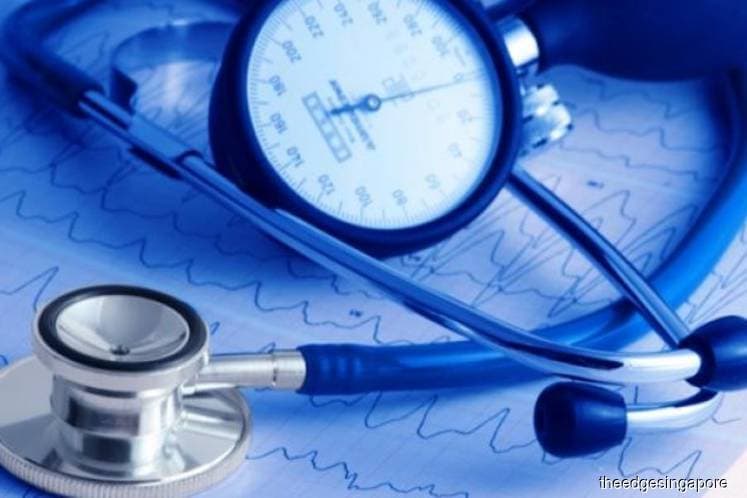
This article first appeared in The Edge Financial Daily on January 22, 2018
Healthcare sector
Maintain neutral: Moving into 2018, we can expect the healthcare sector to be elated by the appreciating ringgit, which should translate into a better margin for hospital players’ cost of drugs (which accounts for about 30% of cost of sales). For Pharmaniaga Bhd, the stronger ringgit will result in lower raw-material prices, which will bode well for margins. For the hospitals, we can expect higher revenues in line thanks to higher contributions from hospitals opened in 2016 and the ramp-up of hospitals opened in 2017. For Pharmaniaga, we can expect earnings to be hampered by lower orders from the concession business, partially offset by its growing Indonesian business and market-share gains from the private sector.
We expect moderate growth for the healthcare sector in 2018. We retain our “neutral” stance on the sector. We continue to expect sentiment to gradually normalise in 2018 amid the backdrop of an election year. The macro factors that will continue to support growth of healthcare companies are still intact, namely rising ageing demographic, population growth, and higher allocations and expenditure towards healthcare in both public and private domains.
In 2018, IHH Healthcare Bhd is expected to increase its bed count by about 470 (about +4.3% year-on-year [y-o-y]) from greenfield (Gleneagles Chengdu: 350 beds) and brownfield (Pantai Hospital Kuala Lumpur: 120 beds). In 2017, we saw start-up costs and preoperating costs of expansion plans hit earnings for IHH with the opening of Gleneagles Hong Kong and Acibadem Altunizade Hospital. In 2018, we expect the group’s earnings to be boosted by a faster ramp-up of operations from Gleneagles Hong Kong and the ramp-up of hospitals acquired in 2016 (Tokuda and City Clinic in Bulgaria). To note, Gleneagles Hong Kong loss for the first nine months of 2017 (9M17) narrowed to RM72 million at the earnings before interest, taxes, depreciation and amortisation (Ebitda) level. We expect the ramp-up in Hong Kong to be driven by complex cases. Gleneagles Chengdu, the group’s first tertiary hospital in China, is tentatively scheduled to be opened in the second half of 2018. As at 9M17, inpatient volumes remained somewhat flattish y-o-y for Malaysia and Singapore, IHH’s two key home markets, whilst India saw a commendable growth (about +18.4%) on the back of continued ramp-up of operations in the country. Singapore continued to lead earnings contribution with about 48% Ebitda as at 9M17, followed by Turkey at 25% with Malaysia trailing by 23%. We like IHH for its global footprint, which acts as a structural hedge mitigating concentration risk in its various home markets. We can also expect IHH to be active in mergers and acquisitions in 2018 and to conclude its acquisition targets in India to further solidify its footprint in the subcontinent, which the group considers to be its fourth home market.
In 2018, KPJ Healthcare Bhd is expected to increase its bed count by about 607 (about +20% y-o-y) from greenfield (KPJ BDO, KPJ Kuching, and KPJ Miri: 396 beds) and brownfield (Sri Manjung, KPJ Johor, and KPJ Ampang: 211 beds) projects domestically. We expect KPJ’s earnings for its financial year 2018 (FY18) to be stronger on the back of ramp-up of hospitals opened in 2016. Potential disposal of the group’s 51% stake in Jetta Gardens (aged care facility in Brisbane Australia) will further shore up FY18 earnings, which we have not accounted for in our model. We understand that negotiations are at their final leg and that a deal could be struck in early FY18. Pre-tax loss narrowed to RM5.7 million at 9M17 (RM8.1 million in 9M16) due to better economies of scale. Our pro forma calculation implies that the sale of Jetta Gardens could potentially boost our FY18 earnings estimate by about RM8 million to RM12 million per annum or an increase of 5% to 7.3% to our projected FY18 profit after tax and minority interest (our assumption is premised upon the reversal of the loss of about RM8 million to RM12 million per annum incurred from Jetta Gardens). In view of its relatively flat share-price performance in 2017, we believe that most negative news have been largely priced in. KPJ trades at 12.5 times FY18 equity value/Ebitda or a steep discount of 40% discount to Asian peers or 37.5% to IHH. We are optimistic that the group’s operations will accelerate in its FY18, given the pickup in patient volume driven by the improving domestic sentiment and ramp-up of its operations.
Demand for healthcare is expected to remain stable. Therefore, we retain our “neutral” stance on the healthcare sector mainly due to: i) lack of any major rerating catalyst(s); (ii) competitive pressure on margins; (iii) and risk of prolonged subdued sentiment. — Hong Leong Investment Bank, Jan 19